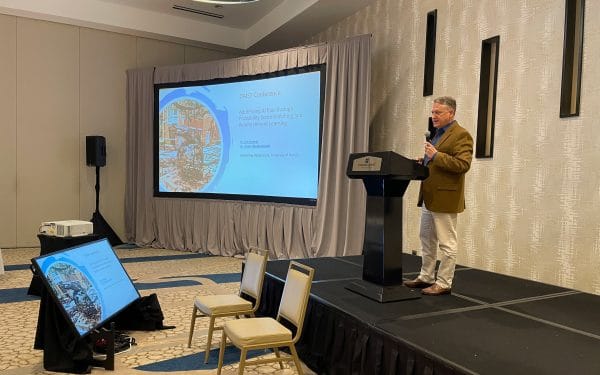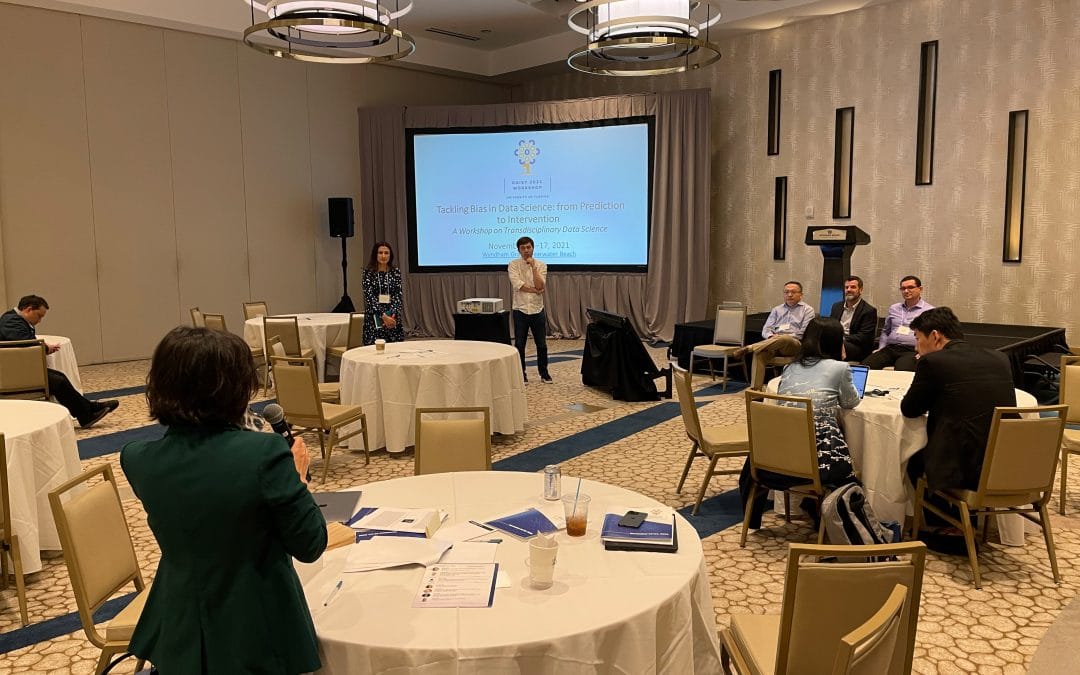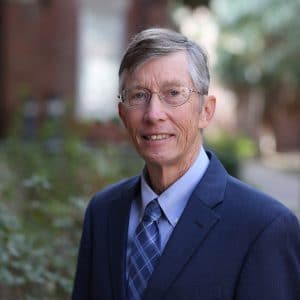Warrington and UF health sciences partner on workshop focused on tackling bias in data science
As our world continues to embrace artificial intelligence (AI) and the many benefits it brings to society, like faster decision making, prediction and digital assistance, we must also recognize its challenges.
One challenge congruent across disciplines is recognizing the inherent bias introduced by data and algorithms when using AI technologies to solve problems.
“It is well known that AI is not immune to bias,” said Mo Wang, Lanzillotti-McKethan Eminent Scholar, Director of the Human Resource Research Center and one of the workshop’s main organizers. “Although the use of organic data and automated analytic procedures appear to be objective, that is far from the case in reality.”
Multiple colleges at the University of Florida with researchers, industry leaders and academics from around the world came together November 16-17 to share ideas about how to do just that at the 2021 DAISY Workshop.
DAISY, which stands for DAta Intelligence SYmposium, is a partnership between the UF Warrington College of Business Department of Management, the UF College of Medicine Department of Health Outcomes and Biomedical Informatics and the UF College of Public Health and Health Professions Department of Epidemiology.
The transdisciplinary aspect of the workshop is key to getting to the root of how bias in data and algorithms can create issues across industries – from health care to work life.

Clinical Professor Jim Hoover presents at the 2021 DAISY Workshop.
“The design and application of AI involve researchers and practitioners from a lot of disciplines,” Wang said. “For example, to apply AI to health care, it takes medical researchers to identify appropriate health care goals (e.g., predicting the onset of a disease or facilitating medical intervention efficiency) and collect relevant data, computer and data scientists to design AI algorithms (and the proper hardware in some cases) accordingly, and industry partners to implement and market the AI system in a cost-efficient way. The broader the issues to tackle, the more transdisciplinary partners are needed.”
Speakers at the workshop included NVIDIA’s Global Head of Medical AI, Director of the National Science Foundation’s Science of Organizations, Moffitt Cancer Center’s Chair of Machine Learning, and researchers from Cornell University, New York University, the University of Florida and beyond.
Speakers presented research papers and gave talks about the most recent work on how AI researchers and practitioners can understand the role that bias plays in their work.
Warrington’s Jim Hoover, Clinical Professor and Director of the Business Analytics and Artificial Intelligence Center, and Joel Davis, Lecturer, both gave talks at the workshop. Hoover’s talk focused on addressing AI bias through probability score matching, while Davis’ presentation discussed the challenges of bias in decision making with an AI advisor.
“Even the best companies in the world that possess amazing AI capabilities can stumble over bias in AI,” Hoover said. “When Apple and Goldman Sachs first released the Apple Credit Card in 2019, their AI algorithm produced outcomes that had the appearance of bias. Key challenges to the public acceptance of the use of AI include the testing of AI recommendations for the appearance of bias and developing AI algorithms that address those perceived biases.”
The DAISY Workshop is part of the greater University of Florida’s long-term, AI-focused initiative that is combining world-class research infrastructure, cutting-edge research and a transformational approach to its curriculum.
“Tackling bias in data science is an important vehicle for improving the design and application of AI in society at large,” said Wang. “This year’s DAISY Workshop featured a number of presentations from UF AI researchers, which showcased the great intellectual capital that UF has on pursuing the AI initiative. It also further strengthened the collaborations between UF researchers with external partners, such as industry leaders and funding agencies.”




